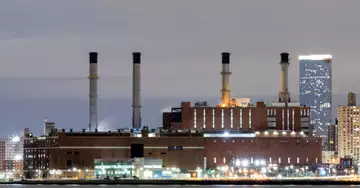A group of national and local nongovernmental organizations (NGOs) is calling on the Biden administration and state agencies to enact regulations to curb the impact of bitcoin mining on local communities and ecosystems.
- A letter sent to the White House on Tuesday calls for a series of measures to combat what they see as negative impacts on communities where Bitcoin miners are located, such as environmental degradation, noise pollution, electricity price increases and drawdowns of renewable energy resources.
- The letter calls on the U.S. Environmental Protection Agency (EPA) to conduct rigorous reviews of proof-of-work (PoW) mining operations; the Office of Management and Budget to establish a registry of PoW miners to improve industry transparency; the Department of Energy to establish energy efficiency standards for PoW operations, study how to limit power density, and protect "low-cost public power allocations" from being "diverted" to PoW mining operations "at the expense of local ratepayers" and financial regulators to demand greater transparency of miners' electricity use and climate impact, as well as limits on their environmental impact, and to combat "misleading claims" about the environmental impact of bitcoin mining.
- The letter was signed by the Environmental Working Group and Greenpeace, which is also spearheading an ad campaign to change the bitcoin code to Proof-of-Stake (PoS) funded by Ripple co-founder Chris Larsen; Earthjustice, the Sierra Club, and Seneca Lake Guardian, which are leading a campaign against Greendige Generation's bitcoin mine in New York; and the League of Conservation Voters, Friends of the Earth, and the Milwaukee Riverkeeper.
- The groups have also appealed to state regulators to enact similar laws and regulations, a representative of the coalition said at a press conference Tuesday.
- Representatives of local non-governmental organizations and communities from New York, West Virginia, South Carolina, Pennsylvania, Georgia and Kentucky attended the press conference.

